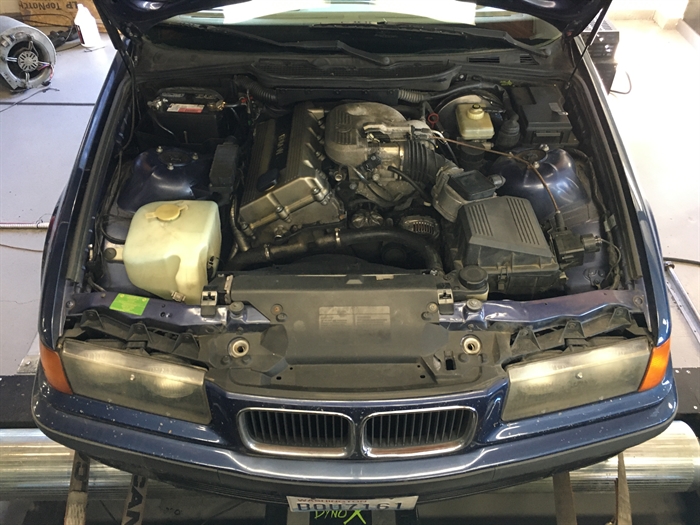Maintaining Your BMW 318ti: Essential Tips for Long Life
Maintaining Your BMW 318ti: Essential Tips for Long Life
Blog Article
Essential Factors To Consider for Selecting the very best Engine for Your Needs
In the world of choosing the suitable engine to meet your needs, a number of important elements need careful consideration to make sure ideal efficiency and effectiveness. From the nuanced balance in between power and performance to the often-overlooked elements of upkeep and solution demands, each element plays a pivotal role in identifying one of the most suitable engine for your details demands. As the intricacy of engine modern technologies remains to advance, discerning one of the most fitting choice demands a deep understanding of the interaction between various factors to consider. By discovering the detailed web of factors that underpin this decision-making process, a more clear course arises towards choosing an engine that not just fulfills but surpasses your expectations.
Power and Efficiency
When assessing engines for ideal performance, it is essential to focus on both power output and effectiveness. Power outcome determines the ability of an engine to create energy, which directly affects its performance. A high power outcome is crucial for requiring tasks such as sturdy applications or high-speed demands. It guarantees that the engine can deal with the work efficiently and efficiently. Nevertheless, power alone is not enough; effectiveness plays a substantial function in figuring out the overall performance of an engine. Efficiency refers to how well the engine converts fuel right into usable energy. An extra efficient engine will certainly supply much better mileage, reduced emissions, and decreased operating prices. Striking the best equilibrium between power output and performance is essential to choosing an engine that satisfies your certain needs. It is important to take into consideration variables such as the intended usage of the engine, environmental effect, and long-lasting expense effects when making this decision. By meticulously assessing both power and effectiveness, you can pick an engine that delivers ideal performance and meets your needs successfully.
Fuel Effectiveness and Economic Climate
Fuel efficiency refers to the engine's capability to transform fuel right into energy with very little waste, directly impacting operating costs and environmental sustainability. Engines with greater gas effectiveness not just lower gas expenses however additionally lower carbon emissions, contributing to a greener operation.

Compatibility and Application
Considering the fuel effectiveness and economy of an engine, the following crucial element to address is its compatibility and application within certain operational contexts. Compatibility refers to just how well the engine integrates with the overall system or tools it powers.
Various engines are made for particular purposes, whether it be industrial machinery, aquatic vessels, vehicles, or power generators. Comprehending the desired application permits for the choice of an engine that can provide the necessary power output, torque, and operational characteristics.
Upkeep and Solution Needs
Maintenance and solution needs play a Read Full Article critical duty in making sure the long life and optimal performance of an engine. Regular maintenance is important to prevent break downs, expand the life-span of the engine, and keep its efficiency. When selecting an engine, it is essential to think about the manufacturer's suggested upkeep routine and the schedule of service facilities or qualified technicians.
Elements such as the regularity of oil modifications, filter substitutes, and overall assessments can significantly influence the engine's efficiency. Some engines may call for more regular servicing based on their layout and usage, while others may have longer intervals between maintenance checks. It is essential to adhere to these solution requirements to avoid pricey repair work and unanticipated downtime.

Expense and Budget Considerations
Spending plan restraints typically play a significant duty in the decision-making procedure when selecting an engine for a particular application. When considering the cost and budget plan ramifications of picking an engine, it is important to examine not just the initial acquisition price but additionally the long-term expenses connected with upkeep, gas intake, and potential upgrades or repair work. It is crucial to strike an equilibrium in between the in advance price of the engine and its general lifecycle prices to make sure that the chosen engine stays economically sustainable throughout its operational life-span.
Factors such as gas efficiency, reliability, and durability can straight affect the complete cost of ownership of an engine. While an extra pricey engine might have higher ahead of time prices, it can possibly lead to lower upkeep and fuel costs in time, thus offering much better worth over time. Additionally, taking into consideration the accessibility and price of extra components, along with the convenience of maintenance and service, can assist avoid unexpected economic stress in the future. By carefully assessing these price and spending plan factors to consider, you can make an informed choice that straightens with your functional demands and economic restraints.
Conclusion

Fuel performance refers to the engine's capacity to convert fuel right into power with minimal waste, straight impacting operating expenses and ecological sustainability.Factors influencing fuel efficiency consist of engine layout, combustion efficiency, and total efficiency optimization. Furthermore, picking the suitable fuel kind and quality as recommended by the engine supplier can further enhance efficiency and extend engine lifespan.
Engines with excellent utility attributes and readily available my site components can reduce maintenance expenses and reduce the time the engine is out of procedure - bmw 318ti. It is important to strike an equilibrium between the upfront cost of the engine and its total lifecycle expenses to guarantee that the selected engine stays financially sustainable throughout its operational life-span
Report this page